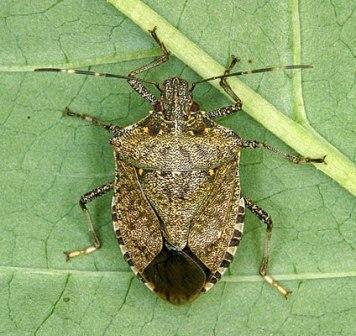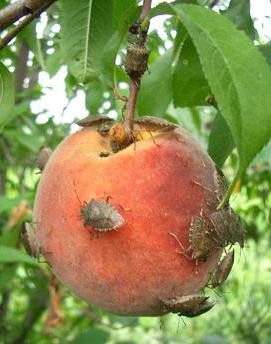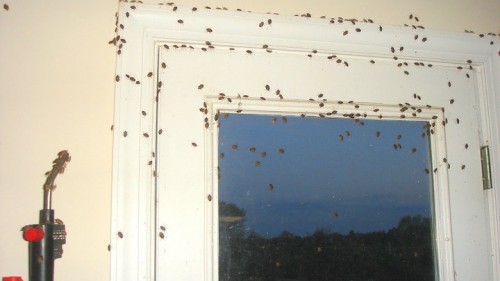
For many of us on the East Coast (particularly MD, DC and VA), this time of year not only marks the first warm weeks which hint of the coming spring season; it means to prepare for the invasion. It’s not a terrorist or nuclear threat we’re talking about…it’s something far smellier: stinkbugs. In 2010 our region suffered a swarm of these foul little pests and as we begin seeing warmer weather in this (hopefully) early spring, they are beginning to settle in like unwanted house guests.

Though they don’t bite or sting, they do emit a pretty putrid odor when crushed, smooshed, vacuumed up, or squished, and though they are more of an annoyance for homeowners, local farmers are beginning to fret. Stinkbugs prey on crops like raspberries, tomatoes, peaches and other fruits, sucking the juices out of them and leaving them undesirable. Especially in the organic farming community, who strive not to use harmful pesticides, concern is on the rise. So, what is your best line of garden defense against these pungent perpetrators? The all natural answer is herbs!

Don't let this happen to your home!
Strongly scented herbs such as Mint, Lavender, Catnip, and Patchouli have been proven to thwart the little stinkers from overwhelming you favorite fruits and veggies. (It’s hard to believe that they are picky about smells…I guess everyone likes their own brand!) You can also try planting other natural insect deterrents around your home or garden like Tansy, ‘Citronella’ Scented Geraniums, Pyrethrums and Rue to keep the bugs at bay. For the insidious insects that have already made it indoors, try making sachets with some of these herbs or use their essential oils to coat your window sills and thresholds. This will hopefully keep the rest of the stinkbugs from sneaking in and joining their friends inside your nice warm home. You can also fill jars with soapy water to catch the critters that have already begun to show up indoors, as the soap will dissolve their exoskeleton, killing them in a non-toxic way.
In conjunction with February being National Bird Feeding Month, try attracting birds to your garden with feeders, houses and baths, to keep your bug problem to a minimum. We’ve heard that blue jays are fond of these stinky little snacks, so encourage them and other seed-eating friends to nest around your yard to prevent the problem from getting out of hand. Bats also find stink bugs to be a delicacy, so place bat boxes throughout your yard and near the garden to help battle the bugs.

I have two questions for you, I live in West Texas ( Andrews ) very very dryyyyyy. I have a green house it is very nice built with the house, we have tried 3 years now to grow a garden there, each year the plants get HUGE, and beautiful but will not put off any fruit, none , we have been everywhere and tries every application you can think of to no avail, the eggplant plants get nearly as tall as my hips and just beautiful just no fruit, any suggestions? Also I am planning to put in a salad garden , different lettuces etc since the plants in the green house get larger than life but no fruit do you think that would be a good place for it. I also forgot, to tell you the plants we have tried in the past, tomatoes, eggplant, squash etc do flower and the flowers do not fall off even though this was the case we used bloom stick as a suggestion but that doesn’t seem to be the problem, they get large healthy they bloom just no fruit????? Tammie
It sounds like maybe they are not being pollinated. In both self pollinating (tomatoes and beans) and insect pollinating vegetables (squash and cucumbers), factors like high temperatures, shade and lack of moisture may result in a lack of vegetable or fruit production. Also, if you are using insecticides, be sure that they are bee and butterfly-friendly, as these insects are vital to pollinating plants that don’t self-fertilize.
Lettuce and salad type plants grow in cool temperatures, so they would be a good winter crop in Texas, but would not do well in the hot summer heat. Pollination is not really a concern for these leafy greens, as we harvest their foliage and not their fruit.
I hope this helps! Let us know if this year improves!